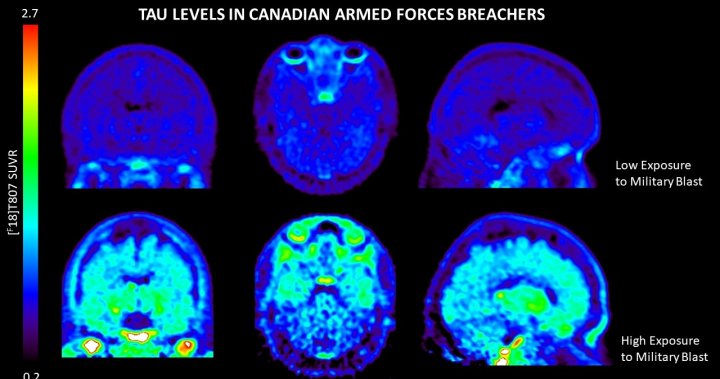
Veterans and mental illness — How Canadian research could unlock the mysteries of the brain
Global News
Neil Vasdev and his team are doing groundbreaking work in making the connection between repetitive concussive trauma and mental health.
Tucked away in the basement of a nondescript midtown Toronto government building, a group of talented international medical researchers conduct their business in secret.
Or so they like to joke.
“I think we’ve been a bit shy about sharing our successes in Canada compared to at least the U.S. and a lot of sites worldwide,” Neil Vasdev, the director of the Centre for Addiction and Mental Health Brain Imaging Centre, told Global News.
Notoriety aside, Vasdev and his team are doing groundbreaking work in making the connection between repetitive concussive trauma and mental health. The key, they believe, is a disorder called chronic traumatic encephalopathy (CTE), which was first discovered in the brains of deceased NFL football players. No treatment exists because thus far nobody has been able to see evidence of it in a living brain.
“Absolutely, that’s our goal,” he says. “We want to be the first centre in the world to image CTE in life.”
To get there, Vasdev has teamed up with Project Enlist, a military-focused group working under the umbrella of the Concussion Legacy Foundation. The goal of Project Enlist is to get military veterans to donate their brains. So far 250 veterans have signed up, but they need more.
“Almost all the data we have from CTE brains comes from American football players,” says Vasdev. “So we really need to see populations such as military populations.”
Tim Fleiszer, an ex-CFL star who started the foundation in 2012 says “it is an incredibly, incredibly serious issue.”
